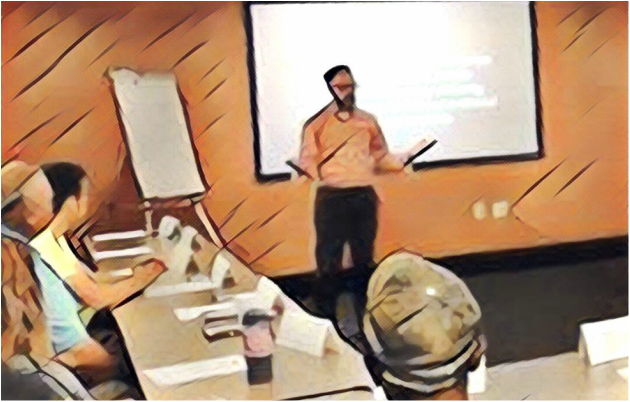|
TLDR; People get engaged by being engaged
In previous posts, I have shared my theory of training based on the ideas of "Self-Discovery" and sharing the why. More on that here. The next biggest question I get asked about is the practical logistics of training. Things we “do” that can make a difference. Actions that make the training more enjoyable and engaging for all involved. So what are they? Break up the status quo. Simple things like re-arranging the tables signal a difference is coming. As humans, we are hard-wired in our brain to react to differences. This change telegraphs difference and can eliminate the need to say it out loud. The meeting starts before the meetings start. There is nothing worse than a cold room, not temperature but atmosphere. An empty room is a blank slate; the first person comes in, the room is quite, so are they. The second person comes in, and it stays quiet and before you know it you have a room full of people that are stone cold quiet. Then we come in asking for engagement and input. It just doesn’t work. So what I have found is ridiculously simple. Before your group arrives, have music playing in the room at a low level. This music creates background noise allowing for a conversation to take place. People get a chance to open up, and when you are ready to start, they are warmed up. The ball I use one of these. People like to engage in the smaller things before jumping into potentially hard question. I a question ball to get things going(there are many to choose from, and you can make your own). It also has the added benefit of keeping things loose and allowing the people in the room to get to know each other. This exercise helps build relationships and enhance productivity. Probably the thing people have said the enjoy the most. Redirect If you are asked a real question, resist the urge to answer. Our temptation is to try to prove we are the expert and answer all the issues. This tendency to answer all the questions is a big mistake. First thank them for the question, then ask around if anybody else has similar issues. (hint: now you have valuable information you can use to influence decision making). From there you can redirect the question to the group to get some standard answers. Now your team is talking to each other, and you are creating a learning environment. People feel good about being able to contribute. Mindsets shift and people become engaged. There is a lot more we can share and expand on, maybe in a future post. So next time you are looking for others to respond to training by making a difference ask yourself…is the training different?
0 Comments
|
Authorthese are just the thoughts of someone who used to know more but now knows less... This website uses marketing and tracking technologies. Opting out of this will opt you out of all cookies, except for those needed to run the website. Note that some products may not work as well without tracking cookies. Opt Out of CookiesCategoriesArchives
June 2023
I would love to hear from you on your thoughts and feedback... |



 RSS Feed
RSS Feed